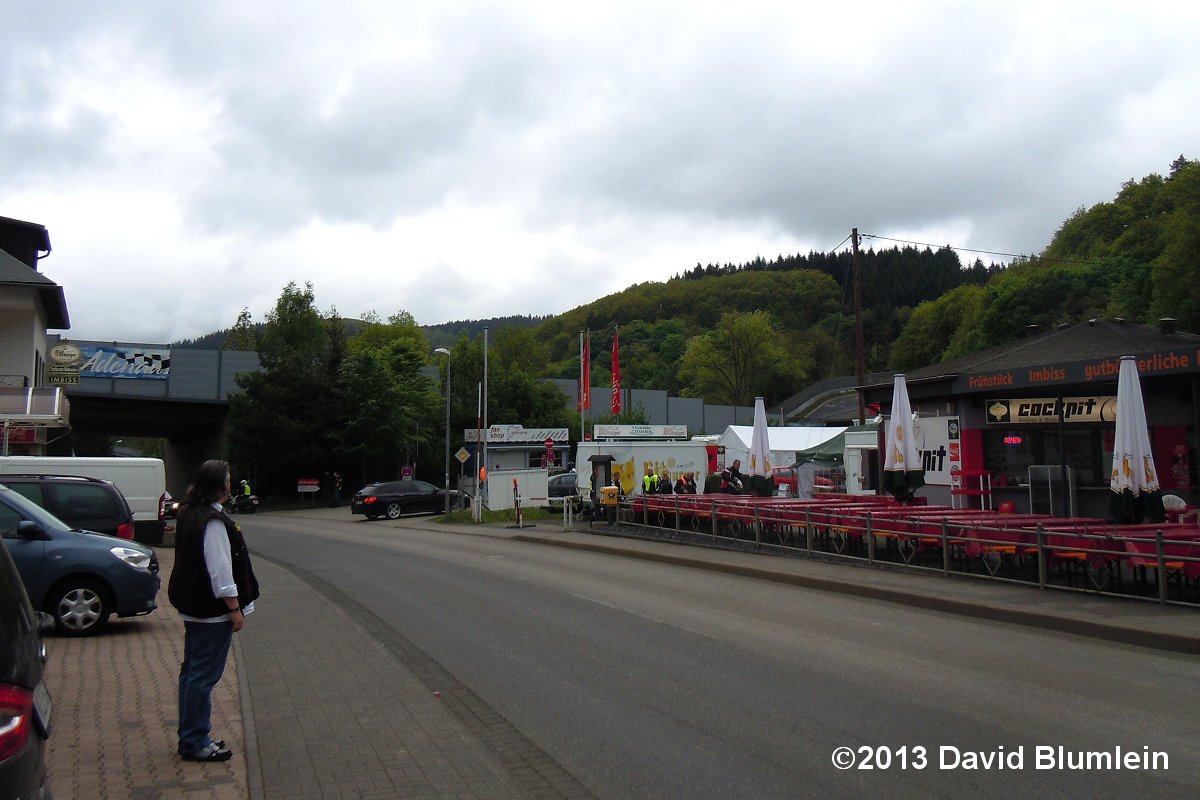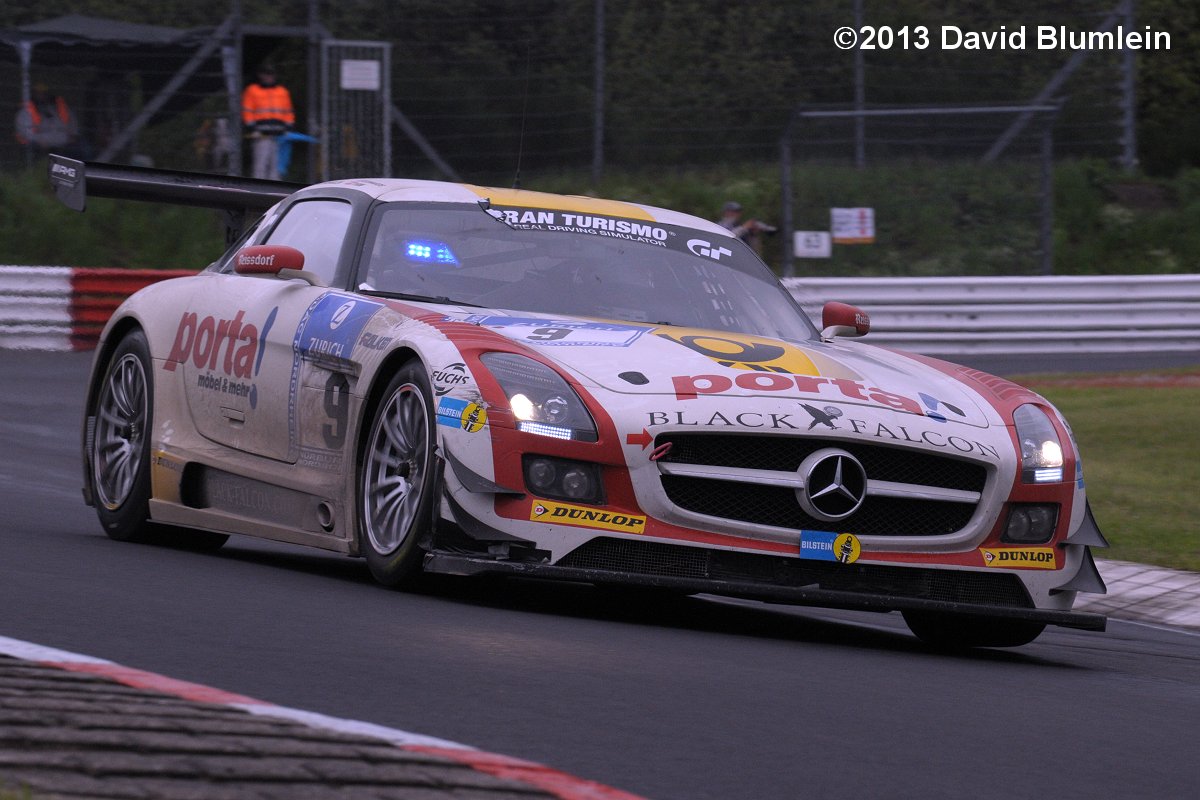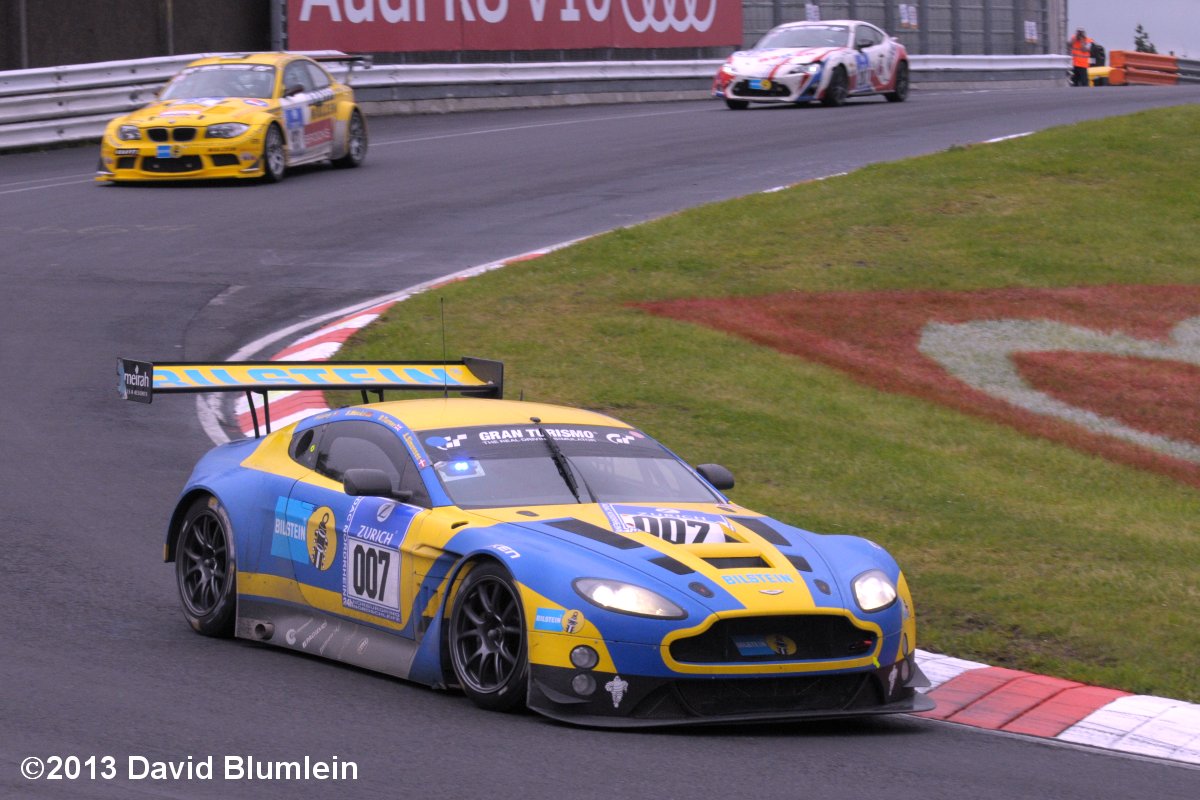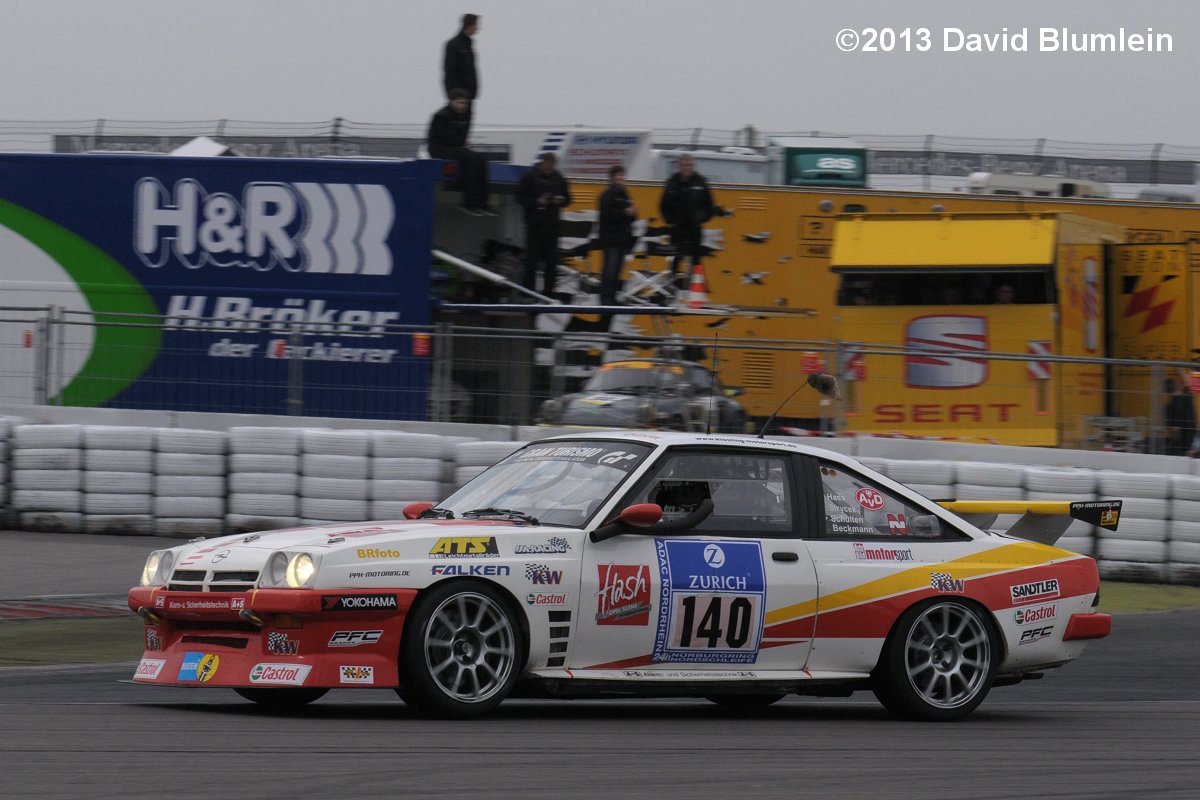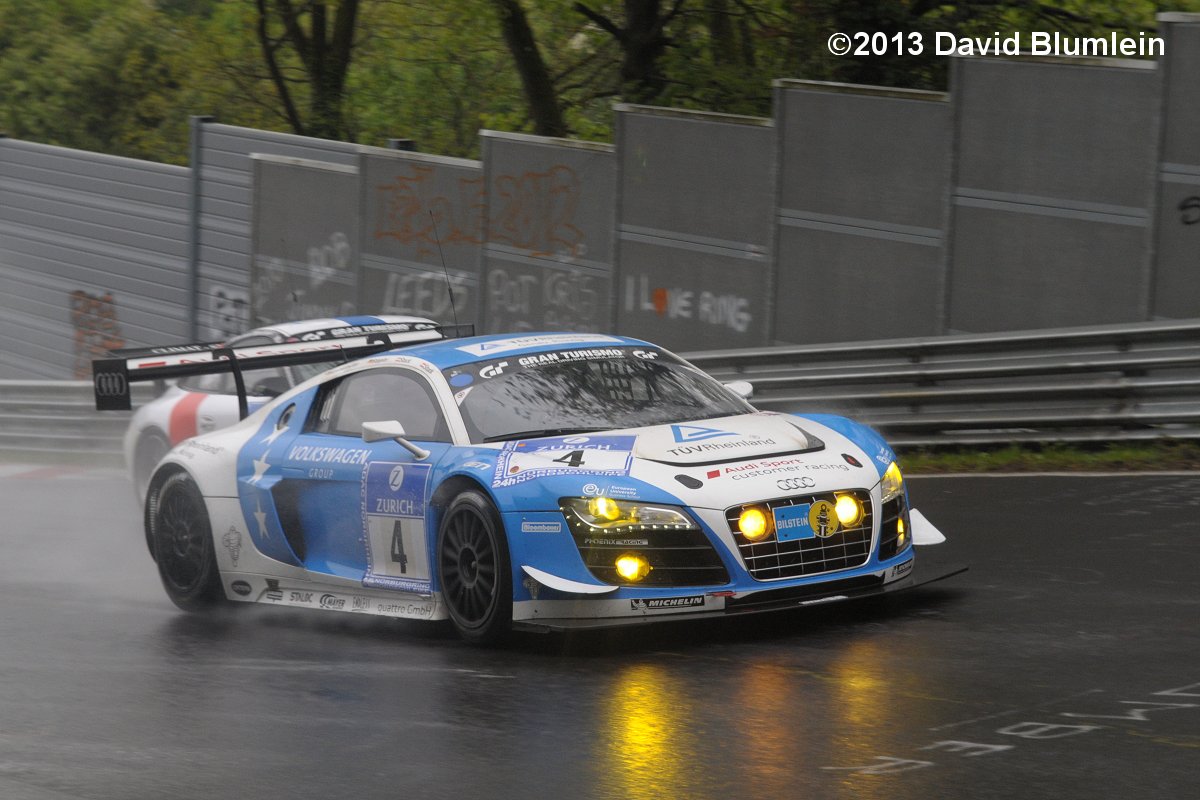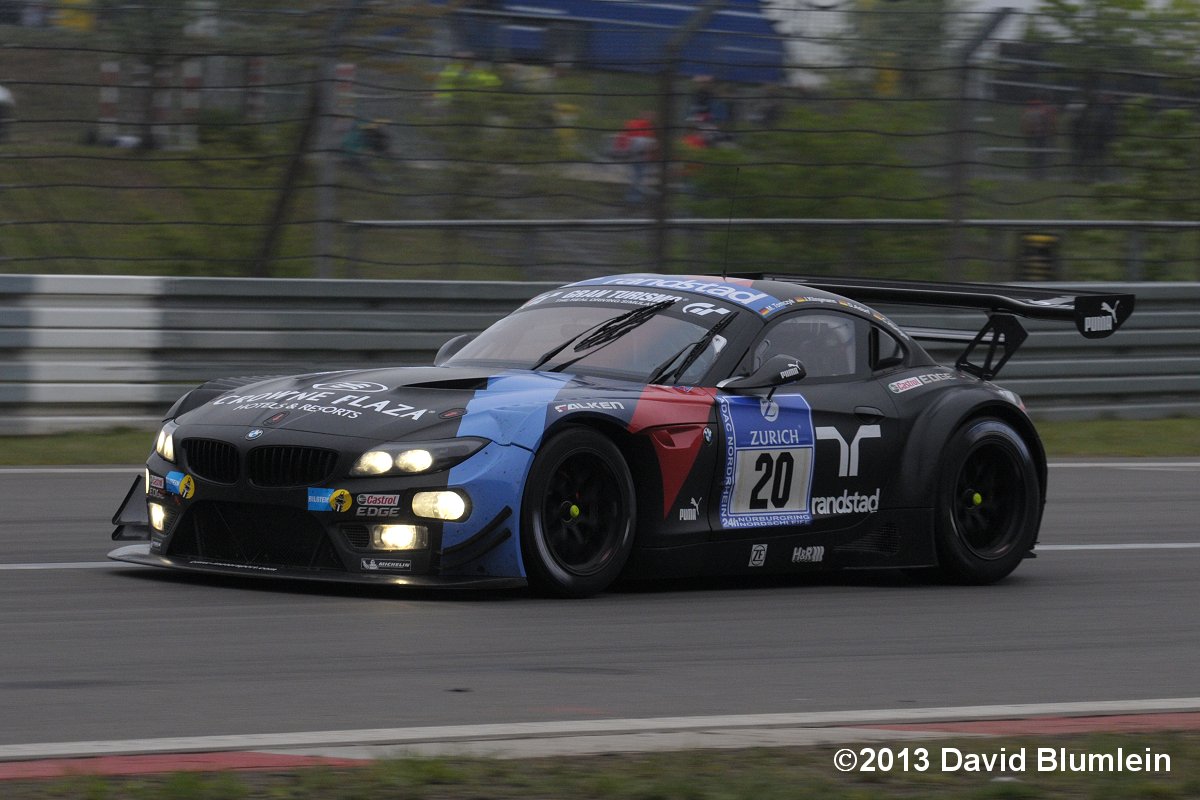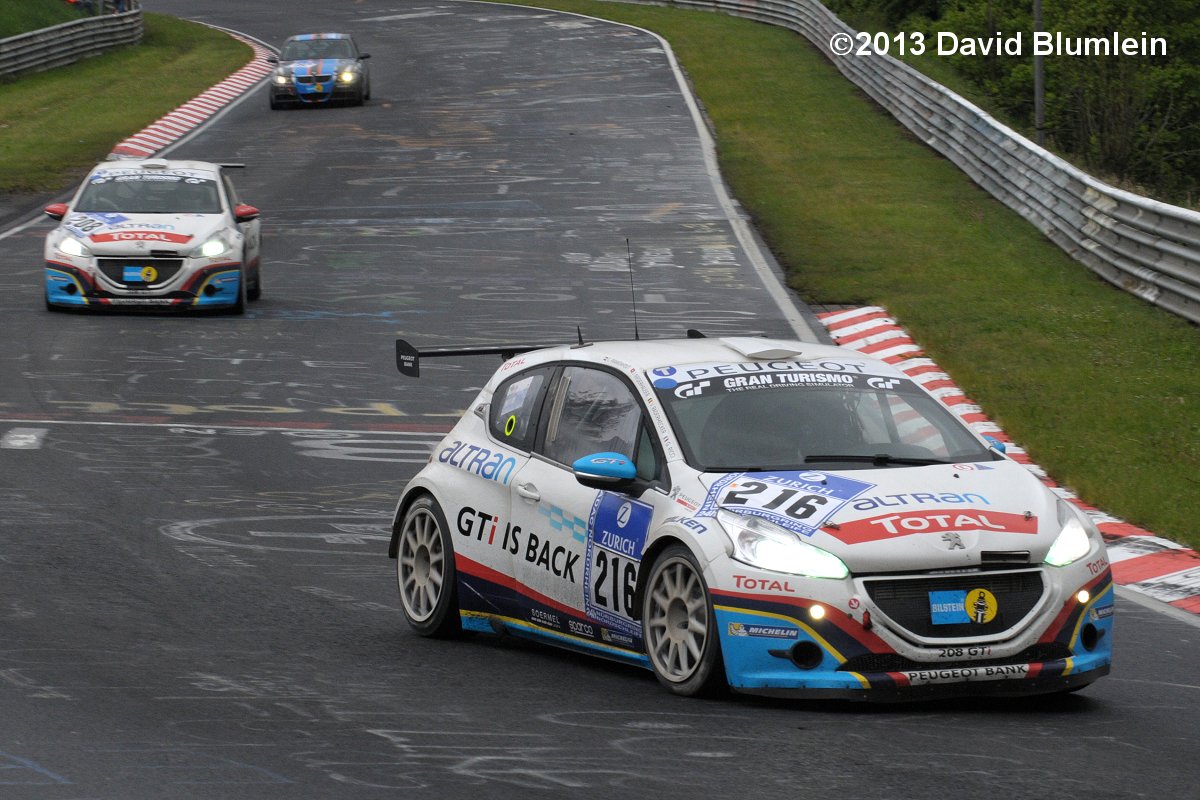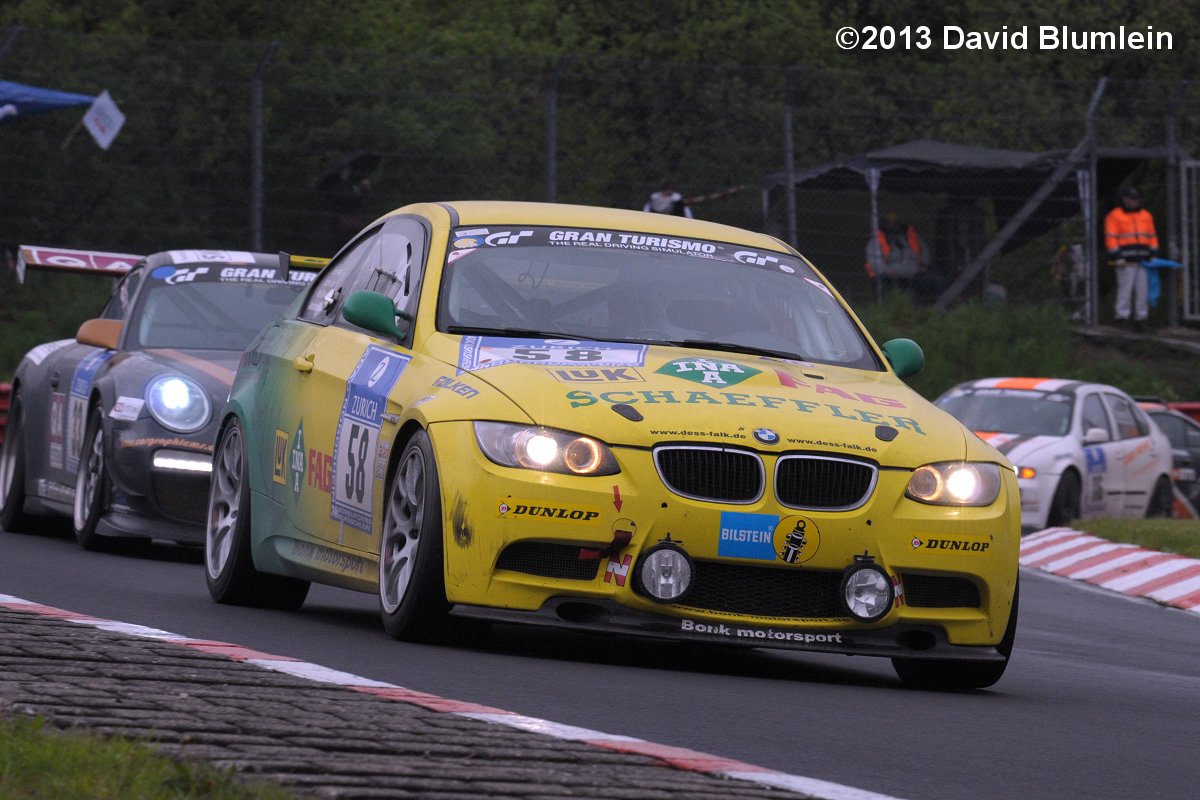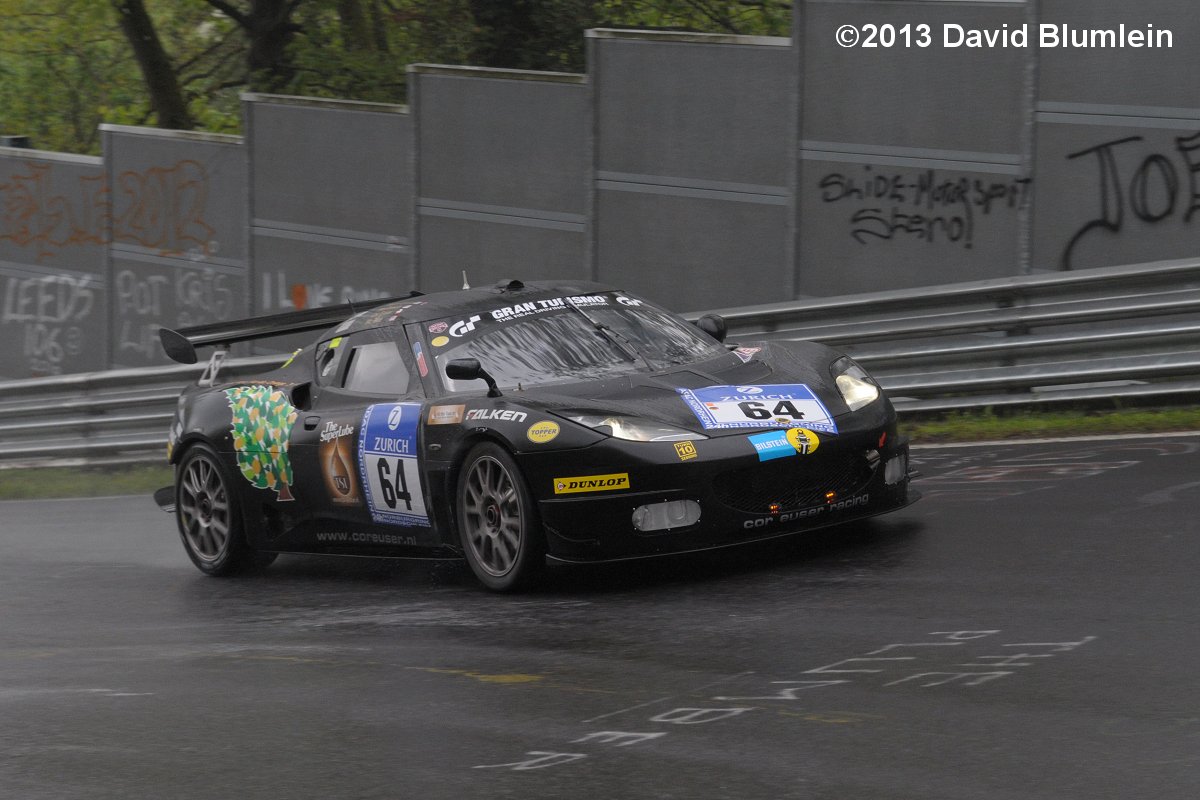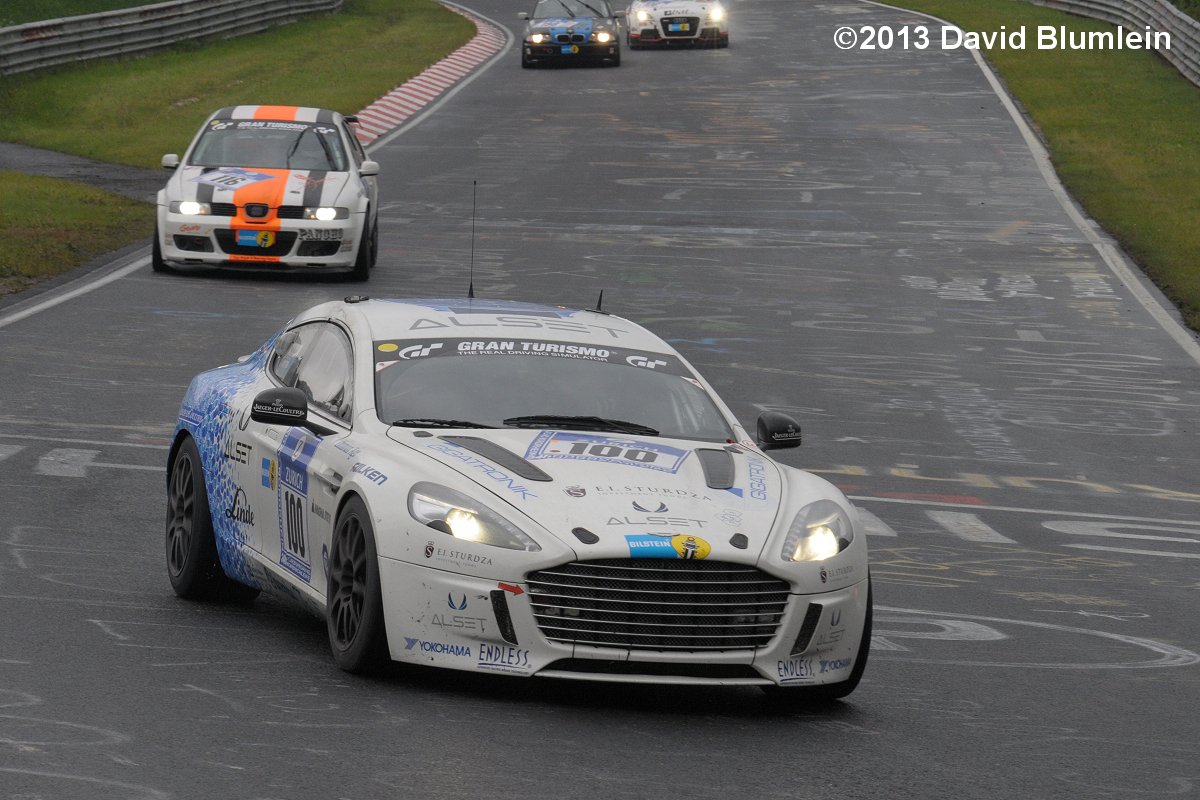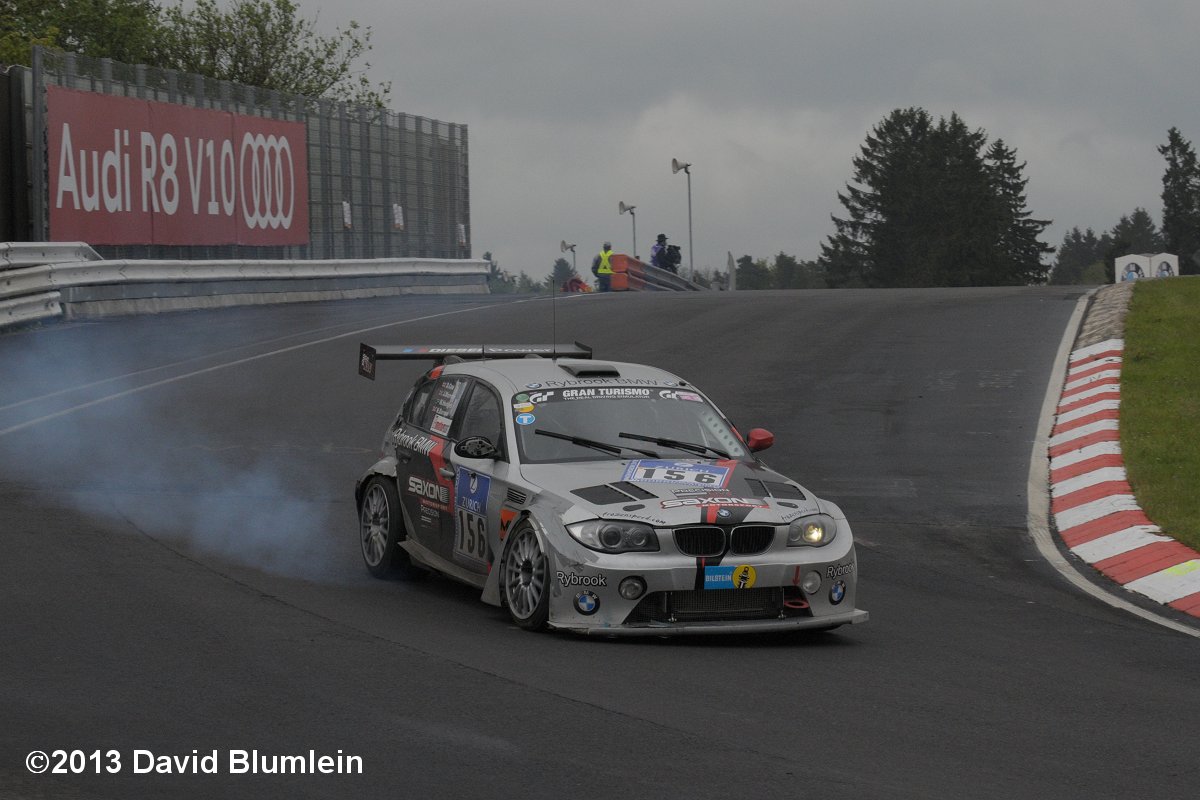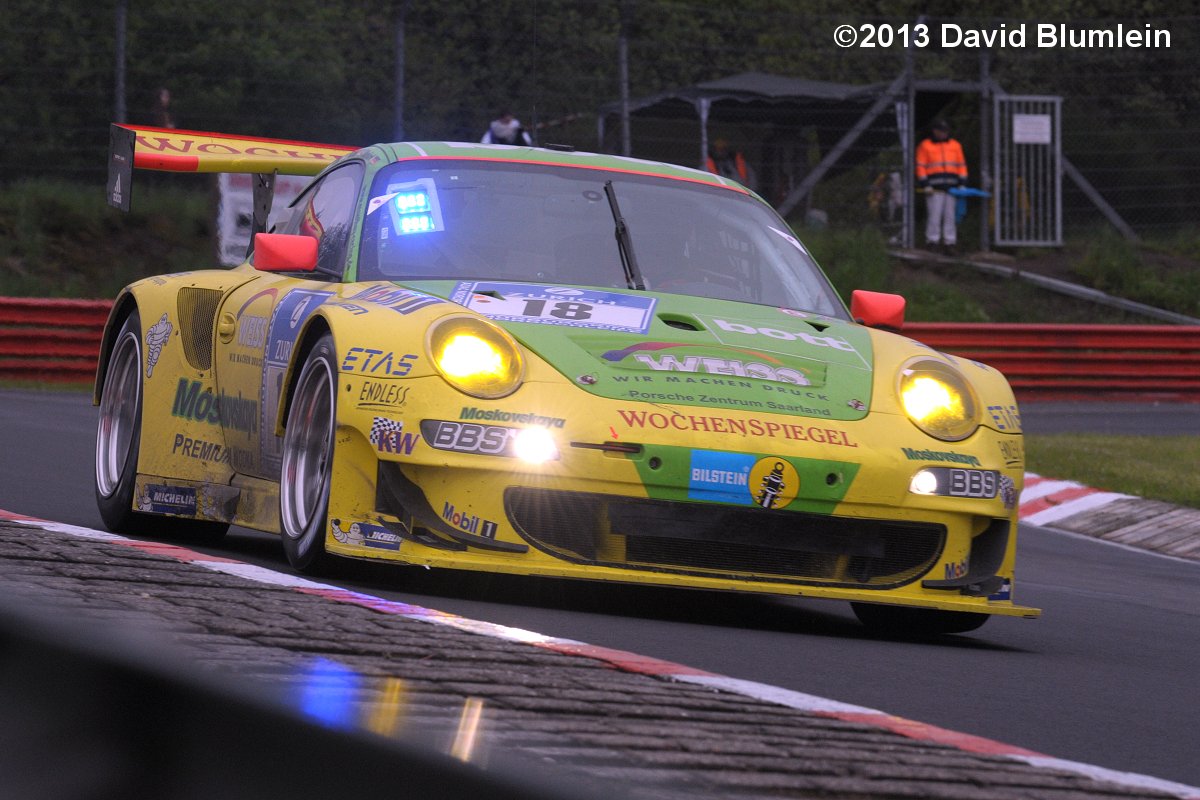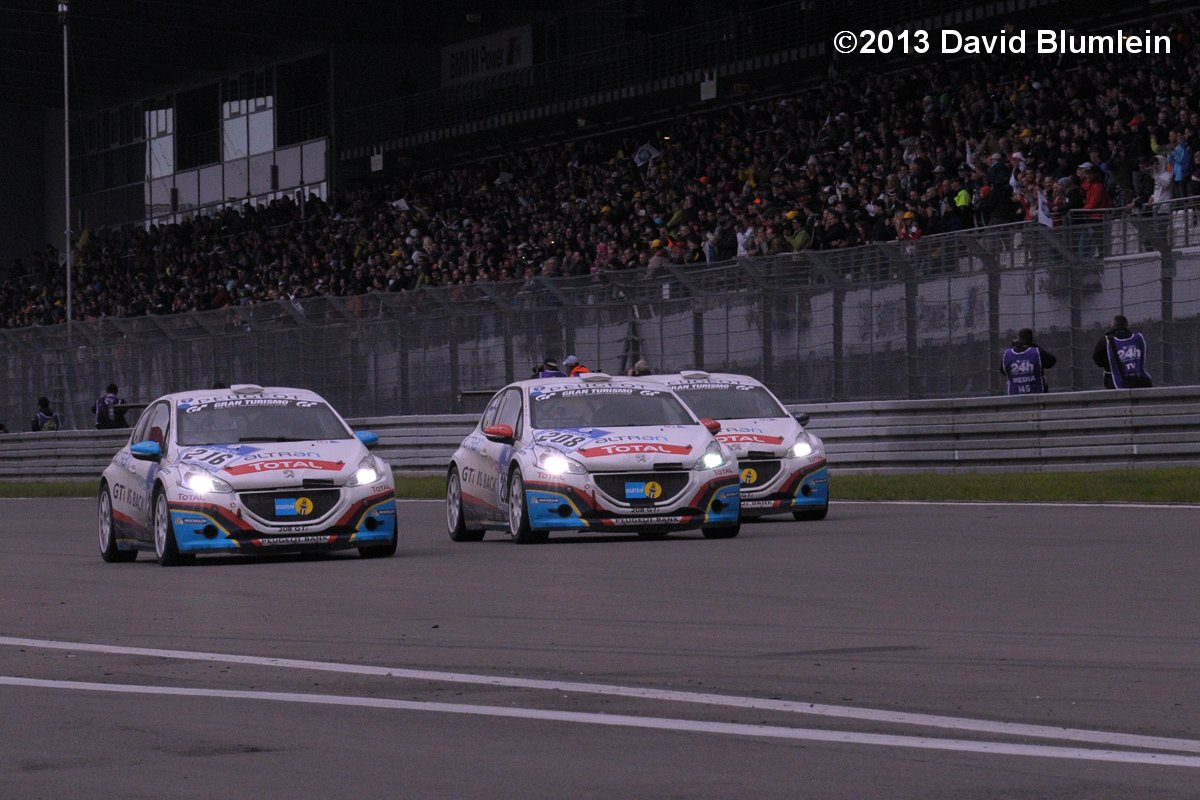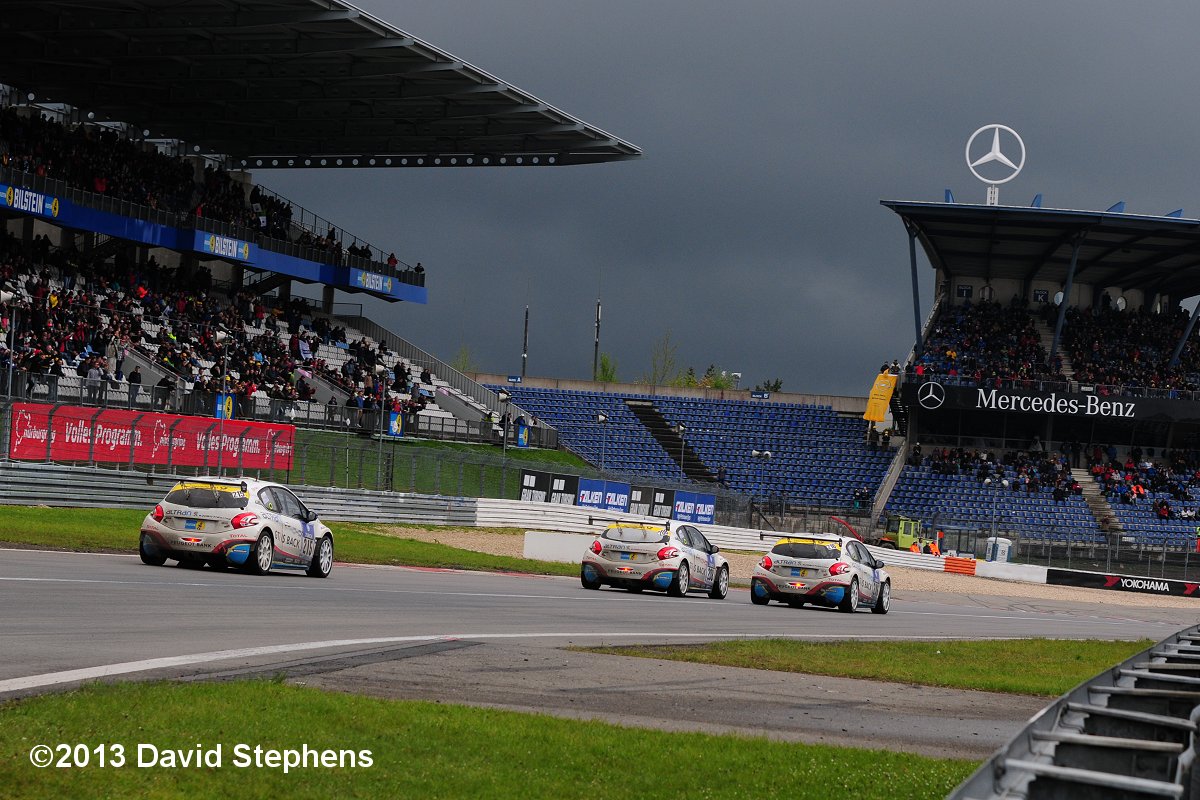The first of the three great endurance classics was a week or two ago. The weather Gods frowned upon the event and yet those of us who got cold and wet were still smiling A bad day on the Nordschleife is better than good days most anywhere. Our Special Correspondent braved the elements to bring you this commentary. Danke!
It is not often that one drives down the main street in a town and passes under a bridge that looks just like a typical railway bridge except that it isn’t! No, this bridge (on the left) carries the race track of the Nϋrburgring’s Nordschleife (northern loop), and the track climbing up to the right can just be seen. This is the Adenau section of the circuit and the cars come down the hill from the left, cross the bridge and charge up the right hander on their way to Bergwerk.
A race circuit cutting through a town’s normal buildings – magic!
The Nϋrburgring 24 Hours 2013 will go down in history for two main reasons. First, it contained the longest enforced suspension of racing in the 41 races run so far owing to the impossibly wet weather conditions – it was red-flagged at 22.44 p.m. when visibility was practically zero and racing only resumed at around 8 a.m. on the Monday. (Fog had already caused a stoppage in 1992 and 2007, and in 1973 the race format called for two 8-hour heats with an 8-hour break between).
Secondly, this was the first win in the event for Mercedes-Benz – BMW had been victorious no less than 19 times, Porsche 11, Ford 5, Chrysler 3 and Opel and Audi once each. The Mercedes SLS AMG GT3 has been developed into a reliable car and it gave Black Falcon yet another 24-hour victory, providing also a first time win for drivers Schneider, Bleekemolen, Thiim and Sean Edwards, the first Briton so to triumph.
173 cars started the 2013 race with 36 retirements (in 2007 there were 224 starters!) but each year this fascinating event attracts scant coverage in the British motoring journals, so a brief look at some of the contenders should go a little way to compensate:
Aston Martin has long had positive links with the Nordschleife – who can forget the DBR1’s three successive wins in the 1,000 km races in 1957-59 thanks to the skill of C.A.S.Brooks and Stirling Moss with their three different co-drivers? The company now has a technical centre alongside the Döttinger Höhe section and has in recent years been a regular entrant in the 24 Hours. This year their works-backed Vantage GT3 shared the front row of the grid and was leading the race prior to the onset of the dreadful weather and the subsequent red flag. The wet conditions that persisted at first on the Monday morning did not suit the car and it had dropped back to tenth by the finish. The picture shows the car diving down to the Hatzenbach towards the end of the race.
This Opel Manta seems to be a regular fixture in recent editions of the 24 Hour race. The crowds love it because the model dates from the Eighties and once again it completed the race, this year in 100th position.
This Audi R8 LMS ultra of Phoenix Racing was one of the favourites, having sat on pole position at the start. Here it is climbing the rise out of the bridge at Adenau on its way to Bergwerk. After last year’s victory this was not Audi’s year – this car could not manage better than 8th.
Nor was it BMW’s! The Z4 GT3s are very potent machines with 4.4-litre V8 engines (the road cars use 6-cylinder units) but this car , again a favourite, finished only 6th. BMW honour was upheld by Maxime Martin’s remarkable drive in the last hour or so when he snatched second place with the Team Marc VDS Z4 GT3 thus spoiling a 1-2-3 Mercedes finish!
Peugeot has been scoring class wins in recent Nϋrburgring 24 Hour races with the RCZ coupés but this year they have been very anxious to promote their new 208 GTI model and all three of their entries completed the race, the best winning the class.
The GT4 class was hotly contested with Porsche no. 56 running away with the class initially but in the end this BMW M3 GT4 finished first in the group on the road followed by a Ginetta G50. Alas it seems that both cars have since been disqualified!
Cor Euser brought his GT4 Dubai 24-Hour class-winning Lotus Evora to the race in an attempt to repeat the performance. Unfortunately, American driver Shane Lewis not only crashed it in practice but out-braked himself in the race and damaged the car again. However, Euser does not give up easily and his team had the car repaired in time for it to do a final lap at the finish and qualify in 134th position.
Alset Global, a company pioneering a hybrid hydrogen fuel system, entered into a collaboration with Aston Martin to develop a car that could take part in an international race using hydrogen as the fuel. Aston Martin chose their newly-released Rapide S model as the basis of this and it was intended that it should have its first outing thus equipped in the Nϋrburgring 24 Hours. The car is a hybrid and used hydrogen for a lap or so at the start of each driving stint, the normal fuel for the V-12 engine taking over for most of the time. In the course of the meeting the car did the first ever lap of the circuit using hydrogen only and thus entered the history books.
This car was run prior to the 24 Hour race in the second and third VLN races (the first was cancelled) to get it race-worthy but it only used petrol on these occasions.
While on the subject of fuels, diesel cars have long had their own class in this race – BMW had the first outright win for a diesel car in an international race when it won here in 1998 – and the smoke being emitted from this 1-Series BMW confirms its diesel status – it went on to win the class ahead of a Seat Leon.
No Nϋrburgring 24 Hour race would be complete these days without the Manthey Team Porsches. Here is car no. 18 pedalled by the top works Porsche drivers. The flashing blue light in the windscreen is to warn drivers of slower cars that the really fast boys are approaching them!
TAILPIECE
Mission accomplished – the three Peugeot 208 GTIs arrive at the finish.
David Blumlein, June 2013

